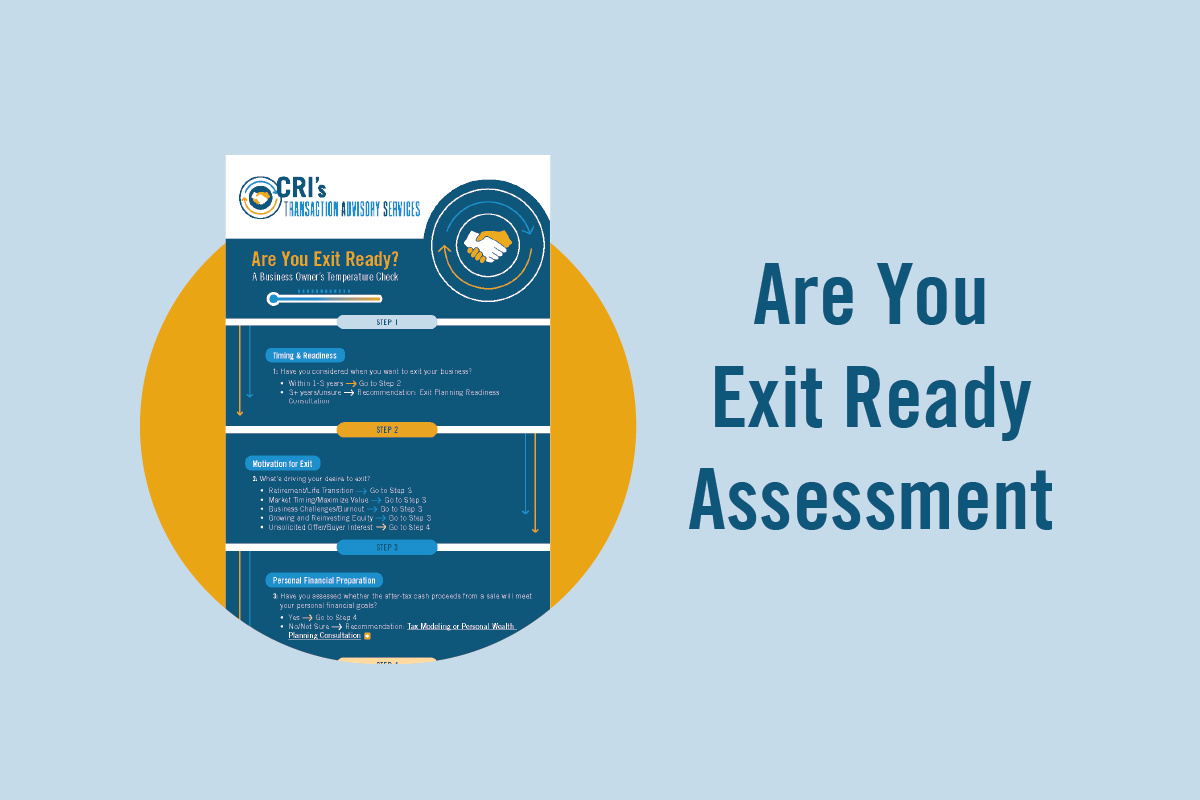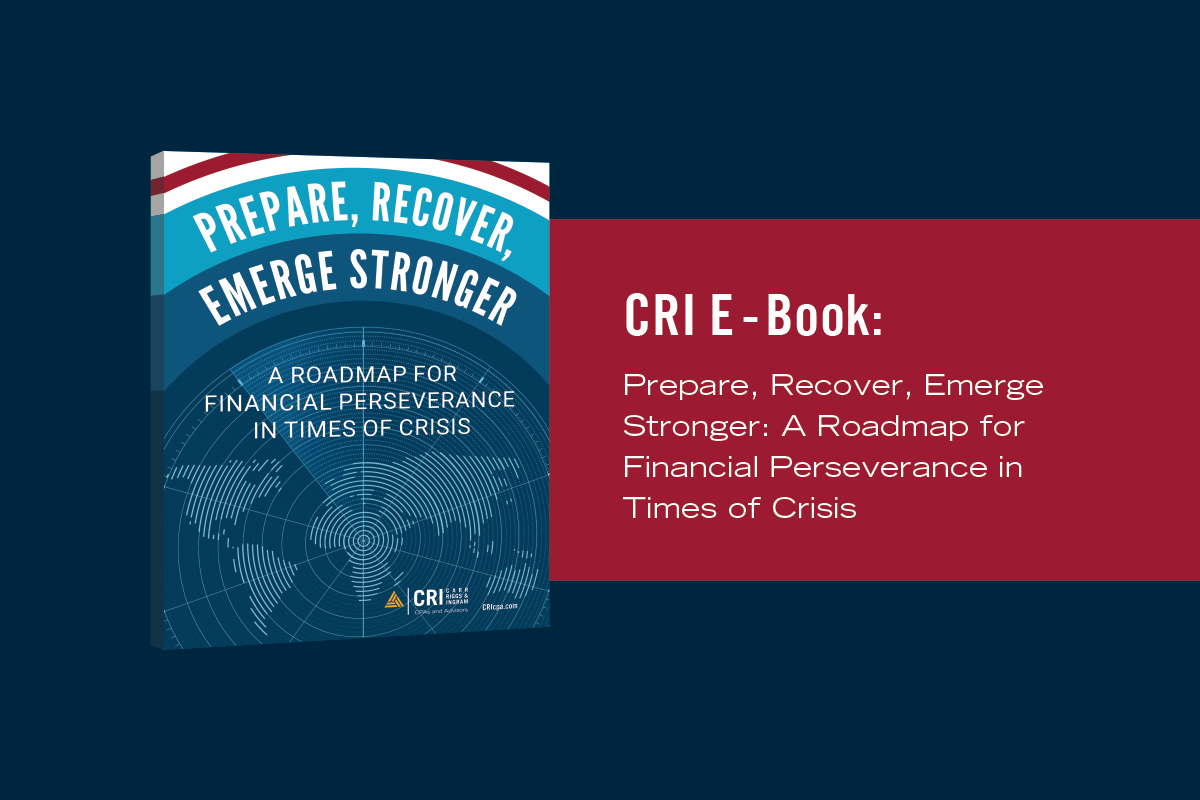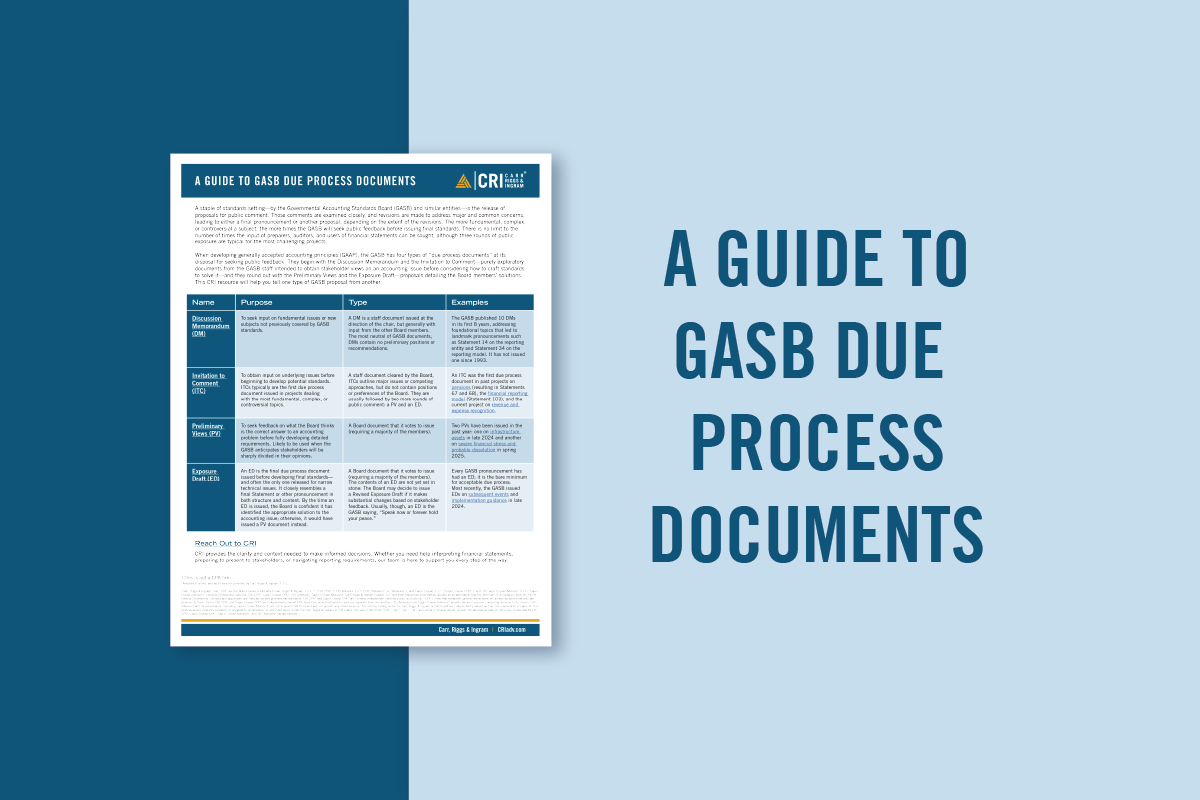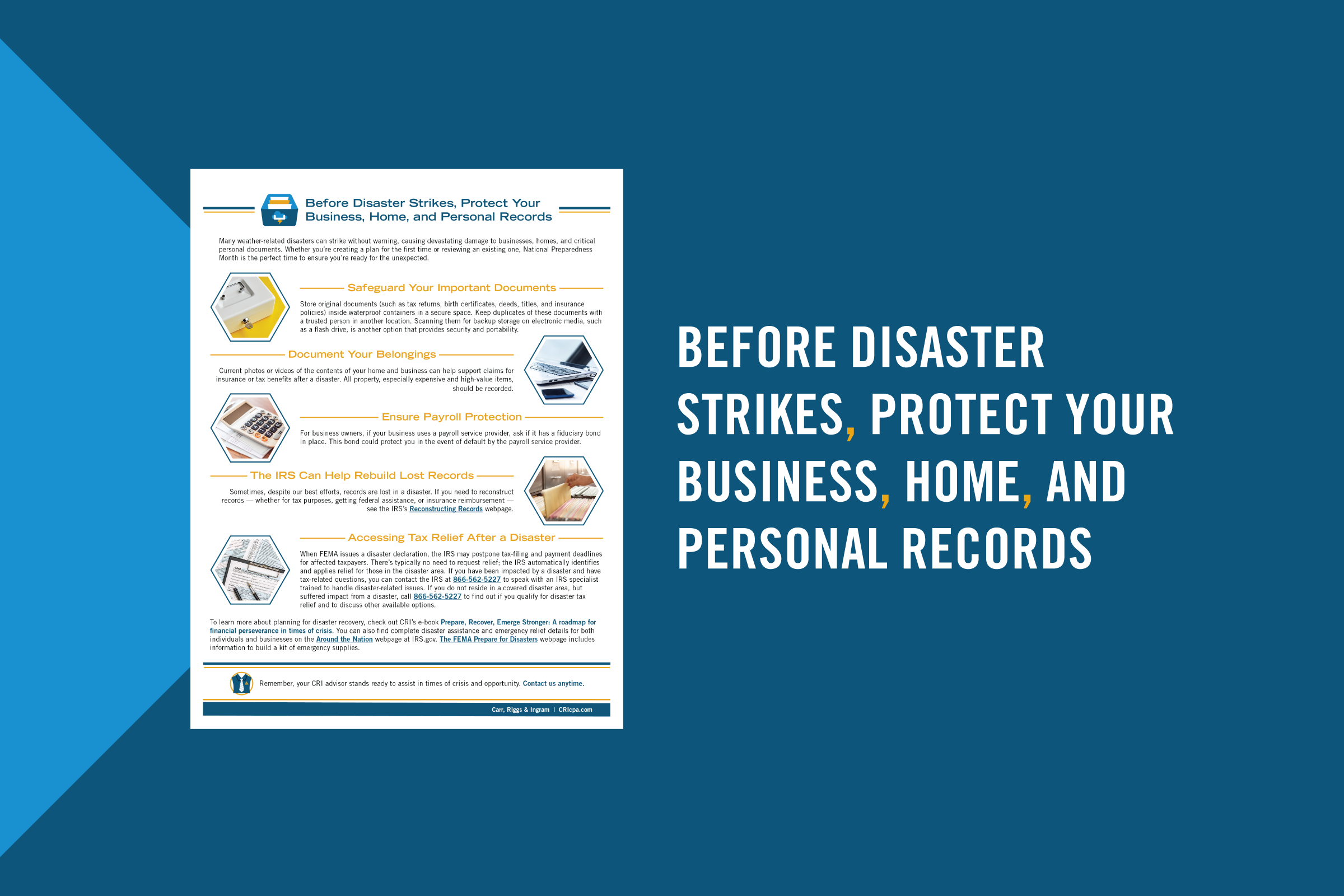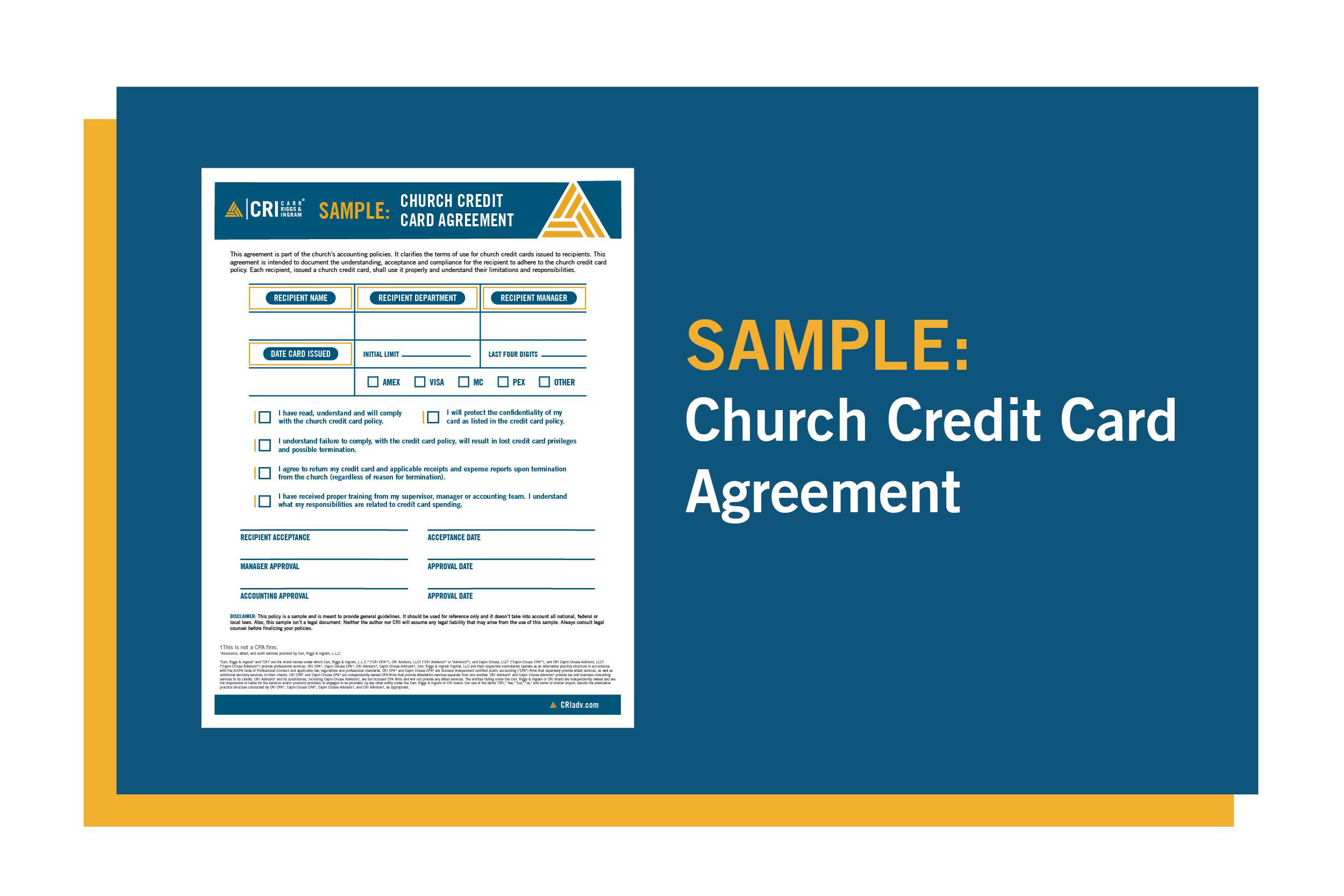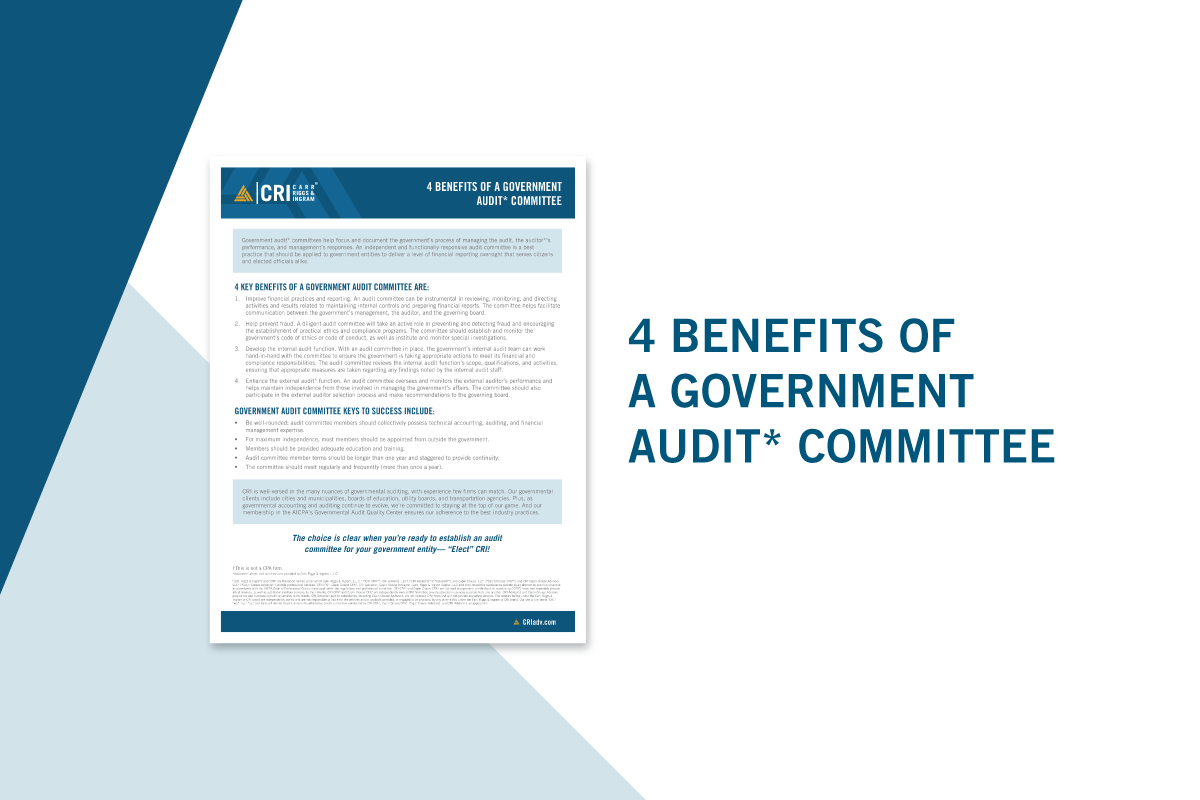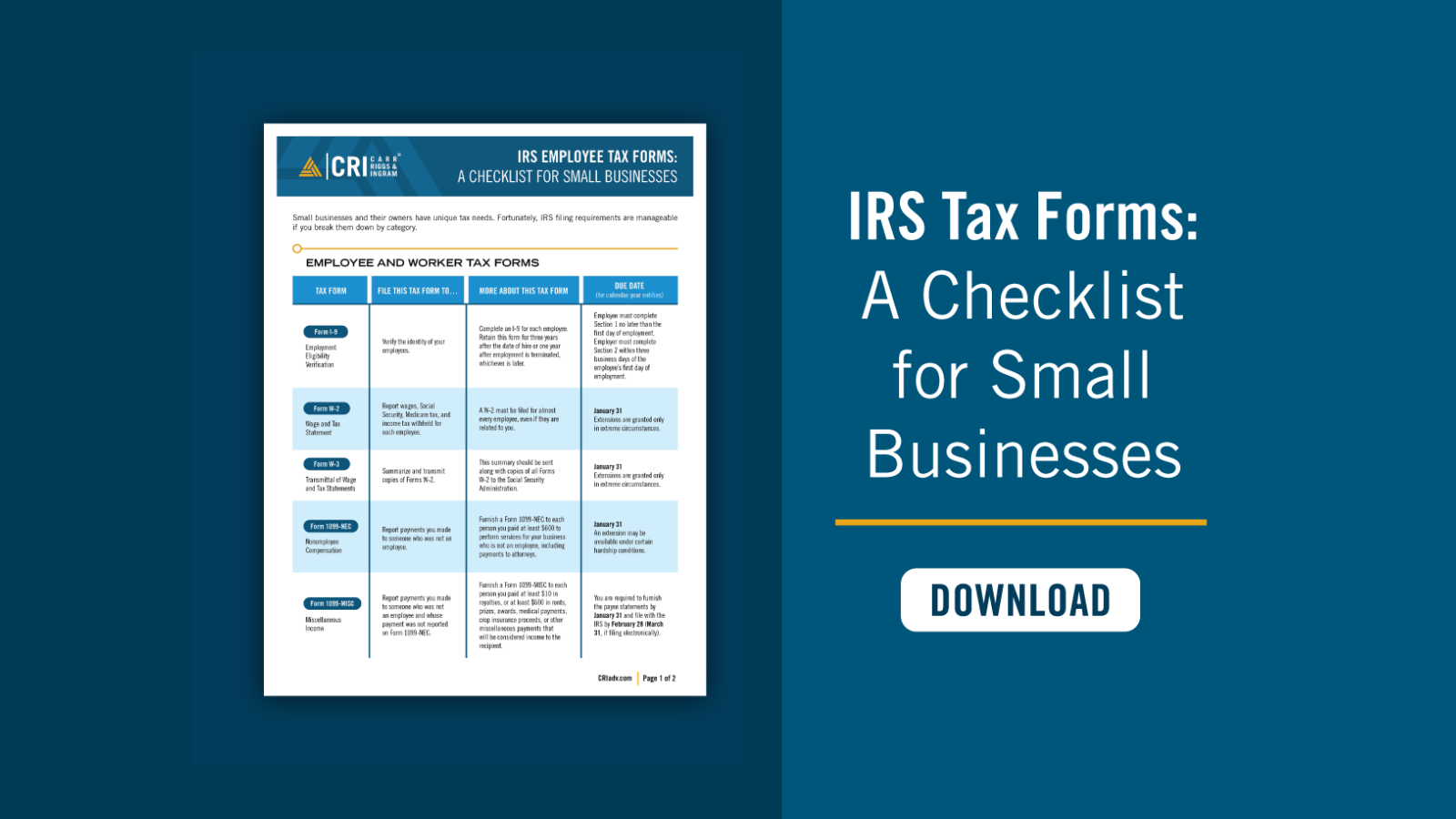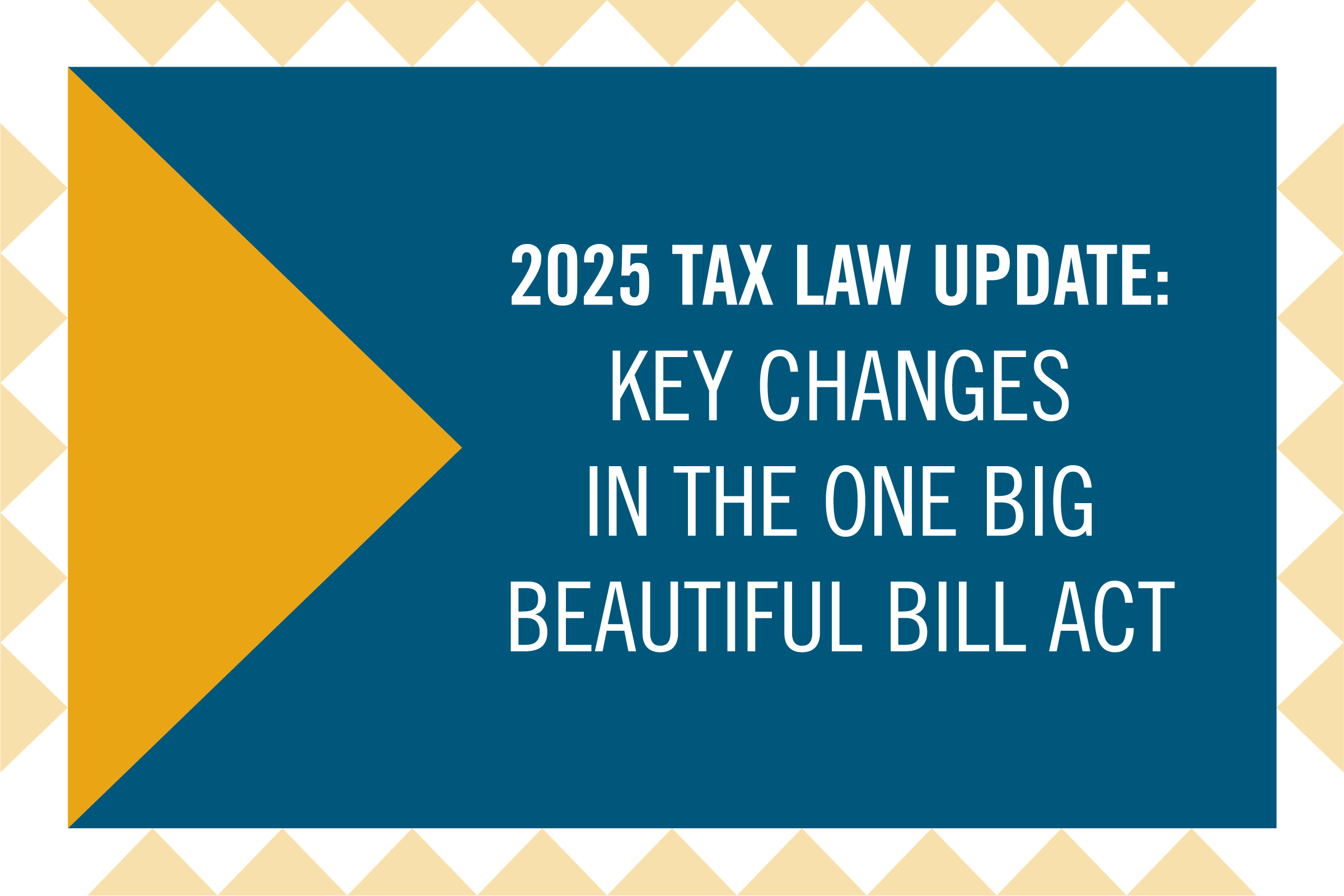Stabilizing Your Business: Improvise, Adapt, Overcome
Mar 24, 2020
In a crisis, your business may be presented with cash flow challenges and opportunities you may have never faced before. To respond to these changes, look no further than a slogan, often associated with the United States Marine Corps but applicable to everyone: Improvise, Adapt, Overcome. These three words outline steps you can take to combat the challenges you are facing as you make decisions that will be key to the survival of your business.
Improvise (Internal Factors to Consider)
Cash Flow
The process of turning profit into cash flow will be longer during a major business disruption. Develop your plan of attack by first determining expected profit or losses, and then be extra mindful of customers taking longer to pay you and vendors needing you to pay them faster.
Anticipate fluctuations in cash flow and take into account nonessential expenditures that can be delayed as well as cost savings from closed facilities — for example, lower usage of utilities and janitorial services. Consider seeking professional help in creating accurate financial projections.
Revenue
What can your business do to generate revenue in a new way? Figure out what the market needs and see if you can meet a missing need. Identify underperforming products or services that can be suspended until market demand returns to support them.
Can you accurately forecast revenues in both the short and long term? Consider the duration of the revenue decline and how your customers are affected by the crisis. You should consider re-forecasting weekly during the foreseeable future.
Employees
Who do you need to protect? In a perfect world, you would like to protect all your employees. However, when faced with a crisis, you must make difficult choices. You have likely spent considerable resources in recent years to build your team, and you will need them even more as you recover from disaster. Options include:
- Retaining only employees essential to the business.
- Lowering hours, perhaps by combining roles.
- Reducing wages paid.
- Claiming payroll tax credits for employer-paid leave.
- Using family members to fill positions.
Remember to monitor legislation for additional support that could allow you to keep employees longer.
Expenses
What cash outlays can be delayed or eliminated? Carefully distinguish between needs and wants, and consider:
- Deferring tax payments in accordance with emergency relief afforded by the government.
- Contacting your landlord and asking for delayed terms or abatement on your rent.
- Cutting discretionary costs, such as advertising, travel, incentive compensation, and contributions to employee benefit plans.
- Carefully analyzing all capital investments, even potentially postponing routine repairs and maintenance.
- Purging expenses related to segments of your business no longer generating revenue.
- Reviewing all contracts for points that can be renegotiated to defer or reduce payments.
- Canceling shipments from suppliers that have yet to ship and are no longer needed.
Adapt (External Factors to Consider)
Customers
Do you need to negotiate payment plans with your existing customers? Now more than ever before, you need to understand how quickly your profits will turn into cash. Remember, your customers will be negatively affected as well. Any periodic payment will be better than none.
Vendors and Suppliers
Can you use the goodwill created with your vendors and suppliers to extend payment terms? Now is the time to use that goodwill you worked so hard to create.
If vendors are requesting payments to be accelerated, push back or evaluate new sources (or both).
Funding Sources
Do you need to consider alternative sources of funding? Do you need to consider easing payment burdens for customers who have been negatively affected by the disaster or crisis?
Consider some ways to adapt to these revenue deferrals:
- Can you ask for payment deferral for fixed-term loans?
- Are your lines of credit available and sufficient?
- Did your business have business interruption insurance for which it has a claim?
- Can you access investments such as CDs and Treasury bills, borrow against life insurance policies, or redeem credit card rewards?
- Are there other local businesses with which you could share resources — including equipment and personnel?
Overcome (Make a Plan)
Do you have a plan to overcome the crisis in front of you? Do you feel comfortable assimilating the information you have gathered to a workable plan? It is imperative to quantify your cash flow needs and implement a plan that will help stabilize your business. Continually update that plan as circumstances change in order to overcome any crisis and prepare for the future.
Remember: No matter what you're facing, you are never alone when it comes to your business. Engaging with an advisory team can help your business by:
- Creating a working cash flow model for your business to run multiple planning scenarios that can be easily updated as conditions change.
- Sharing examples of best practices of how other clients are meeting these challenges.
- Helping you evaluate all funding sources to meet your cash needs and ascertain the level of funding needed to survive the crisis.
- Evaluating your business’s ability to generate future profits to repay the funding required to get through the disruption.
If you are unsure of next steps, or just need more help developing a solid plan for your business, be sure to reach out to your CRI advisor for more information or advice.






